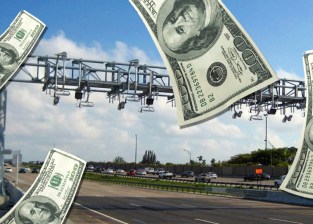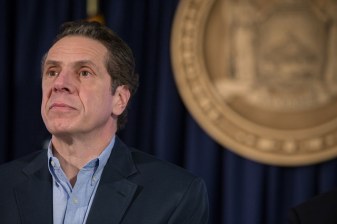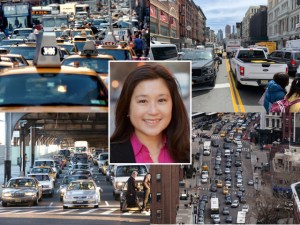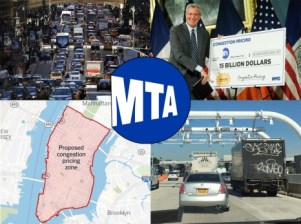Opinion: Congestion Pricing Benefits Are Inarguable; Its Minor Problems are Easily Fixable

Many speakers rose at Wednesday’s MTA board meeting to support congestion pricing, which remains the law in New York State, but has been hit with potshots from opponents such as Republican gubernatorial wannabe Lee Zeldin and the bipartisan tag-team of Reps. Josh Gottheimer (D-N.J.) and Nicole Malliotakis (R-Staten Island). On the eve of Thursday’s rally by Brooklyn lawmakers in support of congestion pricing, we wanted to offer one of the more eloquent defenses of congestion pricing from Wednesday’s hearing, made by Tom Wright of Regional Plan Association.

I’m here today to register Regional Plan Association’s strong support for the MTA’s Central Business District Tolling Program and urge the leadership of the MTA, New York City and state, and federal officials to continue moving ahead with this vital program.
For decades, RPA has strongly advocated for congestion pricing as the centerpiece of a set of policies that will lead to a greener, healthier, more prosperous and equitable city and region.
The Environmental Assessment demonstrates that congestion pricing will have benefits for communities across the city and region:
- It will reduce traffic congestion and improve air quality.
- It will raise vital revenue for public transit.
- It will make the transportation system more equitable.
Congestion pricing will also benefit residents of New Jersey, Long Island and the Hudson Valley, as the vast majority of Manhattan-bound commuters use public transit, and those who drive will benefit from less traffic congestion.
While congestion pricing will dramatically improve regional air quality and traffic, there could be potential impacts on select highways, including the Cross Bronx Expressway, the Staten Island Expressway and the Hudson River crossings. These potential effects – all much smaller than the anticipated benefits – can be addressed by local mitigation strategies such as electrifying Hunts Point terminal and the trucks accessing it; electrifying the bus fleet; directing money for EV charging infrastructure; and accelerating plans to cap the Cross Bronx Expressway.

These investments should be pursued regardless of congestion pricing – and some of them could be funded with the revenues generated by the charge.
Additionally, congestion pricing should, to the greatest extent possible, equalize trip costs across various routes to eliminate “toll shopping,” which incentivizes drivers to go out of their way to avoid tolls, adding to local traffic congestion.
These issues can all be addressed as the planning process continues after the Environmental Assessment is completed. We must move forward now with this vital program.
Tom Wright is president and CEO of Regional Plan Association. Brooklyn lawmakers including Borough President Antonio Reynoso and Council Member Lincoln Restler will rally on Thursday at 9:30 a.m. at Borough Hall to support congestion pricing. And at 11 a.m., a group of New Jersey residents and advocacy groups will rally at the Exchange Place PATH Station, 117 Exchange Pl. in Jersey City.



